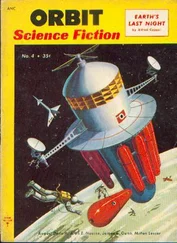Wearily, Steiner said, “Fascinating. There’s always something new, isn’t there, in psychotherapy?”
“Yes,” Dr. Glaub said, nodding. “Especially from the Swiss; they’re ingenious in comprehending the world-views of disturbed persons, of encapsulated individuals cut off from ordinary means of communication, isolated--you know?”
“I know,” Steiner said.
Dr. Glaub, still nodding, had moved on, to stop by another parent, a woman, who was seated with her small girl, both of them examining a cloth picture book.
Hope before the deluge, Steiner thought. Does Dr. Glaub know that any day the authorities back on Earth may close Camp B-G? The good doctor labors on in idiotic innocence . . . happy in his schemes.
Walking after Dr. Glaub, Steiner waited until there was a pause in the conversation and then he said, “Doctor, I’d like to discuss this new theory a little further.”
“Yes, yes,” Dr. Glaub said, excusing himself from the woman and her child; he led Steiner over to one side, where they could talk privately. “This concept of time-rates may open a doorway to minds so fatigued by the impossible task of communicating in a world where everything happens with such rapidity that--“
Steiner interrupted, “Suppose your theory works out. How can you help such an individual function? Did you intend for him to stay in the closed chamber with the slowed-down picture screen the rest of his life? I think, Doctor, that you’re all playing games, here. You’re not facing reality. All of you at Camp B-G; you’re so virtuous. So without guile. But the outside world--it’s not like that. This is a noble, idealistic place, in here, but you’re fooling yourselves. So in my opinion you’re also fooling the patients; excuse me for saying it. This slowed-down closed chamber, it epitomizes you all, here, your attitude.”
Dr. Glaub listened, nodding, with an intent expression on his face. “We have practical equipment promised,” he said, when Steiner had finished. “From Westinghouse, back on Earth. Rapport with others in society is achieved primarily through sound, and Westinghouse has designed for us an audio recorder which picks up the message directed at the psychotic individual--for example, your boy Manfred-- then, having recorded this message on iron-oxide tape, replays it almost instantly for him at lower speed, then erases itself and records the next message and so on, with the result that a permanent contact with the outside world, at his own rate of time, is maintained. And later we hope to have in our hands here a video recorder which will present a constant but slowed-down record to him of the visual portion of reality, synchronized with the audio portion. Admittedly, he will be one step removed from contact with reality, and the problem of touch presents difficulties--but I disagree when you say this is too idealistic to be of use. Look at the widespread chemical therapy that was tried not so long ago. Stimulants speeded up the psychotic’s interior time-sense so that he could comprehend the stimuli pouring in on him, but as soon as the stimulant wore off, the psychotic’s cognition slowed down as his faulty metabolism reestablished itself--you know? Yet we learned a good deal from that; we learned that psychosis has a chemical basis, not a psychological basis. Sixty years of erroneous notions were upset in a single experiment, using sodium amytal--“
“Dreams,” Steiner interrupted. “You will never make contact with my boy.” Turning, he walked away from Dr. Glaub.
From Camp B-G he went by bus to a swanky restaurant, the Red Fox, which always bought a good deal of his wares. After he had finished his business with the owner he sat for a time at the bar, drinking a beer.
The way Dr. Glaub had babbled on--that was the kind of idiocy that had brought them to Mars in the first place. To a planet where a glass of beer cost twice what a shot of Scotch cost, because it had so much more water in it.
The owner of the Red Fox, a small, bald, portly man wearing glasses, seated himself next to Steiner and said, “Why you looking so glum, Norb?”
Steiner said, “They’re going to close down Camp B-G.”
“Good,” the owner of the Red Fox said. “We don’t need those freaks here on Mars; it’s bad advertising.”
“I agree,” Steiner said, “at least to a certain extent.”
“It’s like those babies with seal flippers back in the ‘60s, from them using that German drug. They should have destroyed all of them; there’s plenty of healthy normal children born, why spare those others? If you had a kid with extra arms or no arms, deformed in some way, you wouldn’t want it kept alive, would you?”
“No,” Steiner said. He did not say that his wife’s brother back on Earth was a phocomelus; he had been born without arms and made use of superb artificial ones designed for him by a Canadian firm which specialized in such equipment.
In fact he said nothing to the little portly man; he drank his beer and stared at the bottles behind the bar. He did not like the man at all, and he had never told him about Manfred. He knew the man’s deepseated prejudice. Nor was he unusual. Steiner could summon up no resentment toward him; he merely felt weary, and did not want to discuss it.
“That was the beginning,” the owner said. “Those babies born in the early ‘60s--are there any of them at Camp B-G--I’ve never set foot inside there and I never will.”
Steiner said, “How could they be at B-G? They’re hardly anomalous; anomalous means one of a kind.”
“Oh, yeah,” the man admitted. “I see what you mean. Anyhow, if they’d destroyed them years ago we wouldn’t have such places as B-G, because in my mind there’s a direct link between the monsters born in the ‘60s and all the freaks supposedly born due to radiation ever since; I mean, it’s all due to substandard genes, isn’t it? Now, I think that’s where the Nazis were right. They saw the need of weeding out the inferior genetic strains as long ago as 1930; they saw--“
“My son,” Steiner began, and then stopped. He realized what he had said. The portly man stared at him. “My son is there,” Steiner at last went on, “means as much to me as your son does to you. I know that someday he will emerge into the world once more.”
“Let me buy you a drink, Norbert,” the portly man said, “to show you how sorry I am; I mean, about the way I talked.”
Steiner said, “If they close B-G it will be a calamity too great for us to bear, we who have children in there. I can’t face it.”
“I see what you mean,” the portly man said. “I understand your feeling.”
“You are superior to me if you understand how I feel,” Steiner said, “because I can make no sense out of it.” He set down his empty beer glass and stepped off the stool. “I don’t want another drink,” he said. “Excuse me; I have to leave.” He picked up his heavy suitcases.
“You’ve been coming in here all this time,” the owner said, “and we talked about that camp a lot, and you never told me you had a son in there. That wasn’t right.” He looked angry, now.
“Why wasn’t it right?”
“Hell, if I had known I wouldn’t have said what I said; you’re responsible, Norbert--you could have told me, but you deliberately didn’t. I don’t like that one bit.” His face was red with indignation.
Carrying his suitcases, Steiner left the bar.
“This is not my day,” he said aloud. Argued with everybody; I’ll have to spend the next visit here making apologies . . . if I come back at all. But I have to come back; my business depends on it. And I have to stop at Camp B-G; there is no other way.
Suddenly it came to him that he should kill himself. The idea appeared in his mind full blown, as if it had always been there, always a part of him. Easy to do it, just crash the ‘copter. He thought, I am goddamn tired of being Norbert Steiner; I didn’t ask to be Norbert Steiner or sell blackmarket food or anything else. What is my reason for staying alive? I’m not good with my hands, I can’t fix or make anything; I can’t use my mind, either, I’m just a salesman. I’m tired of my wife’s scorn because I can’t keep our water machinery going--I’m tired of Otto who I had to hire because I’m helpless even in my own business.
Читать дальше









